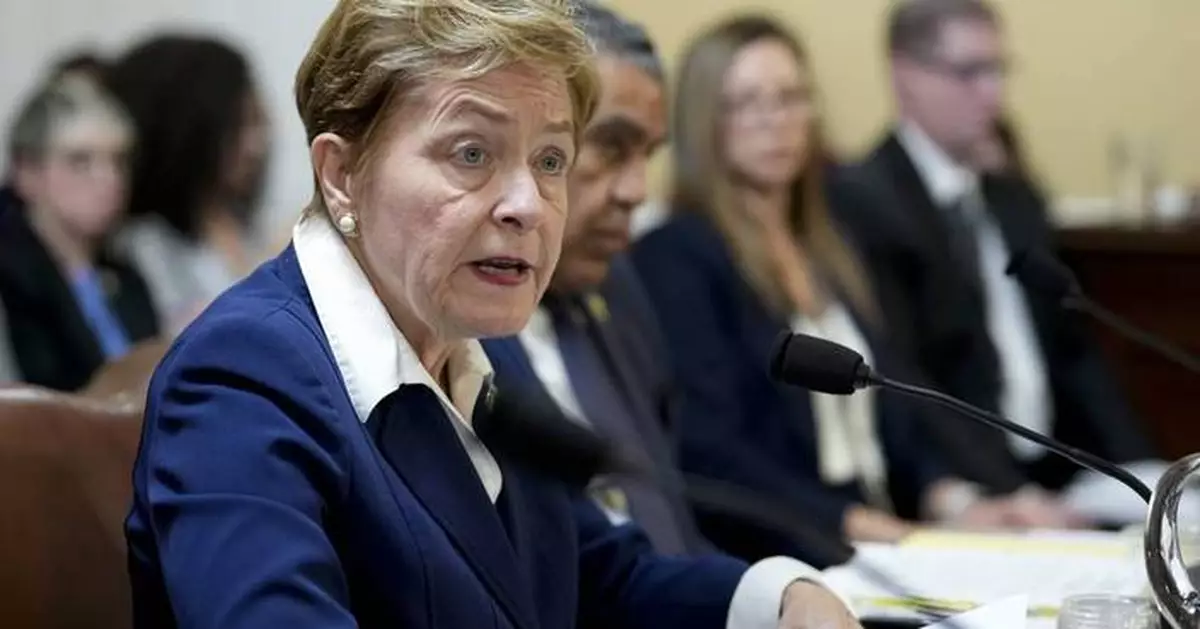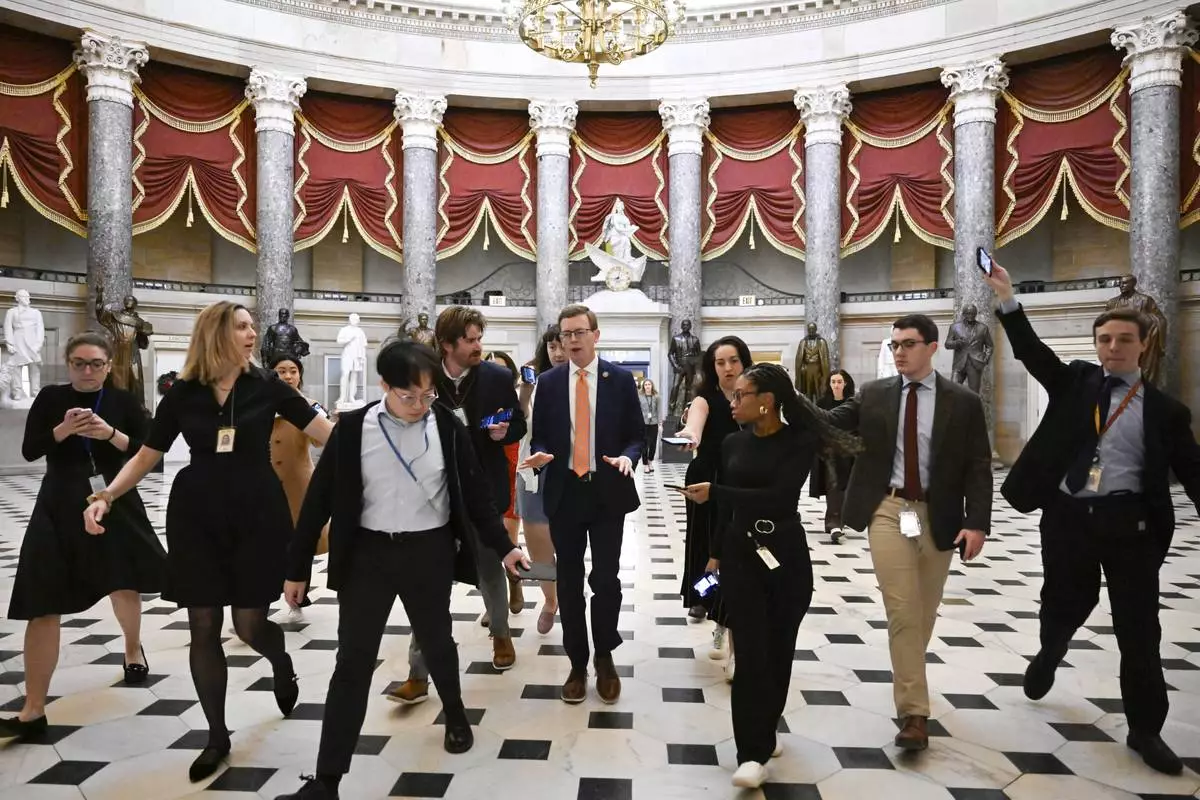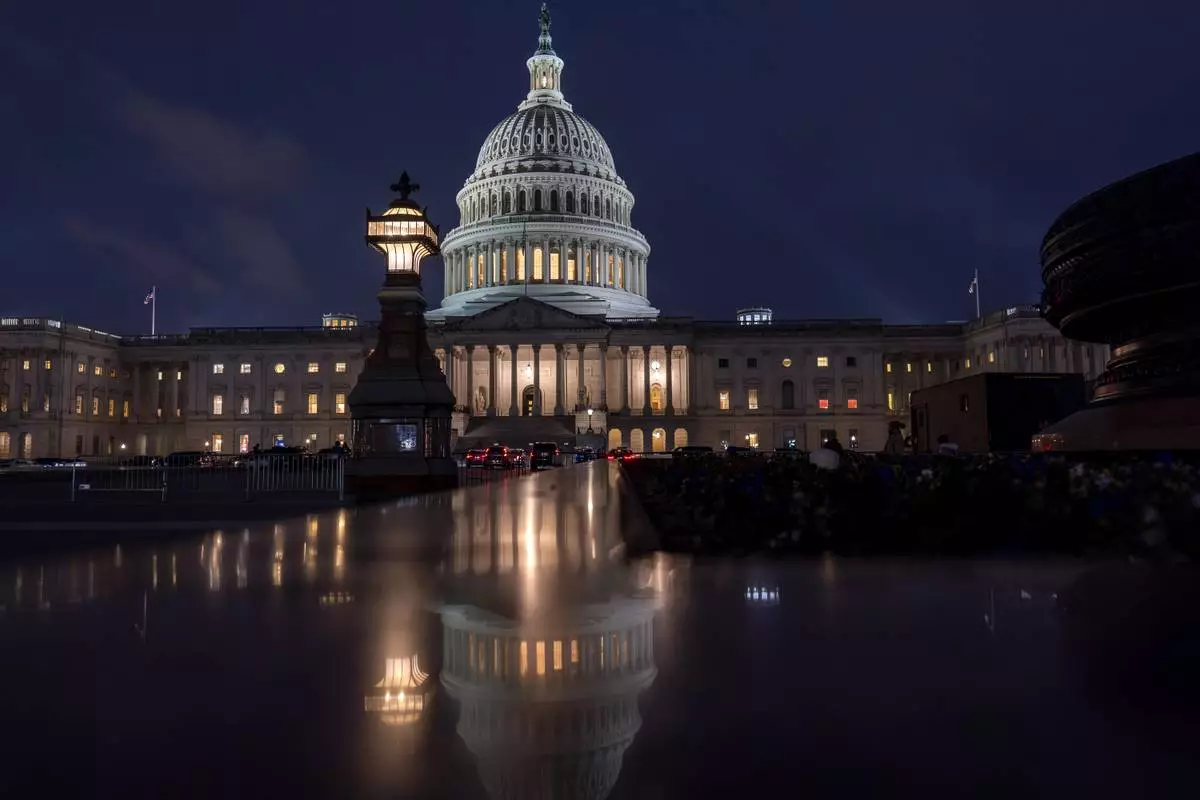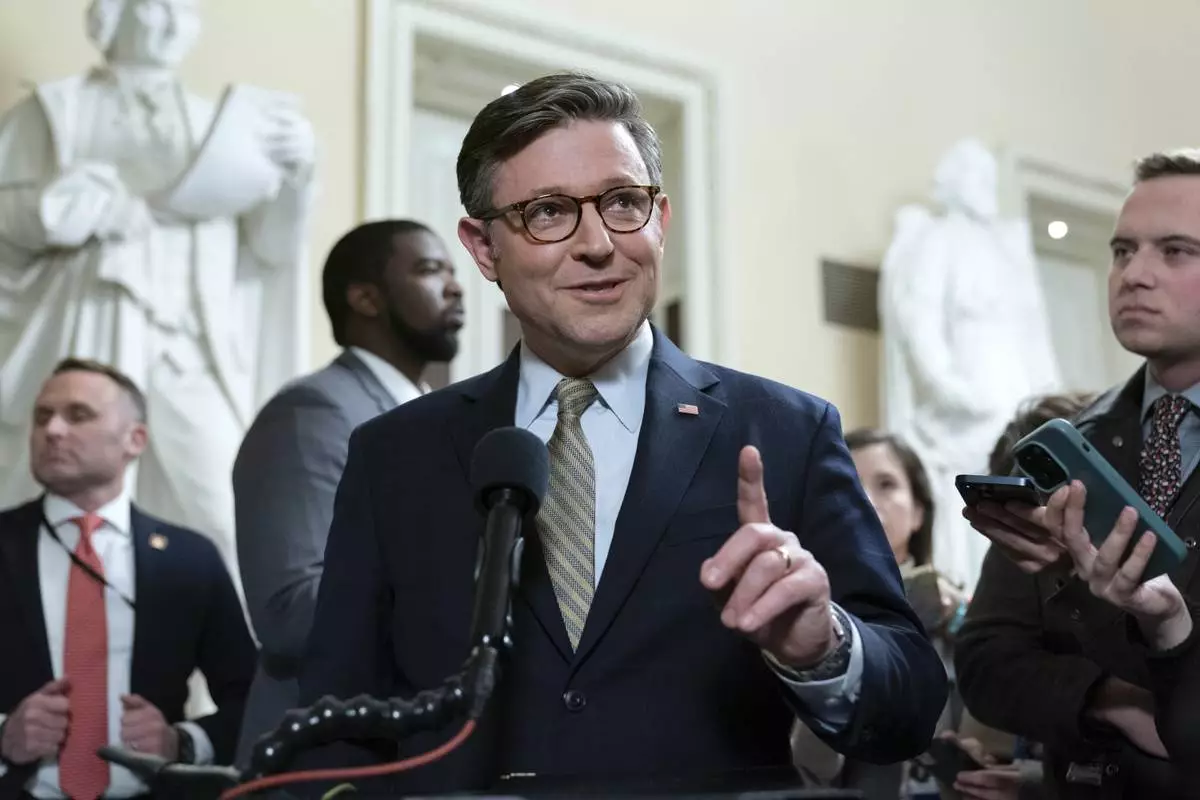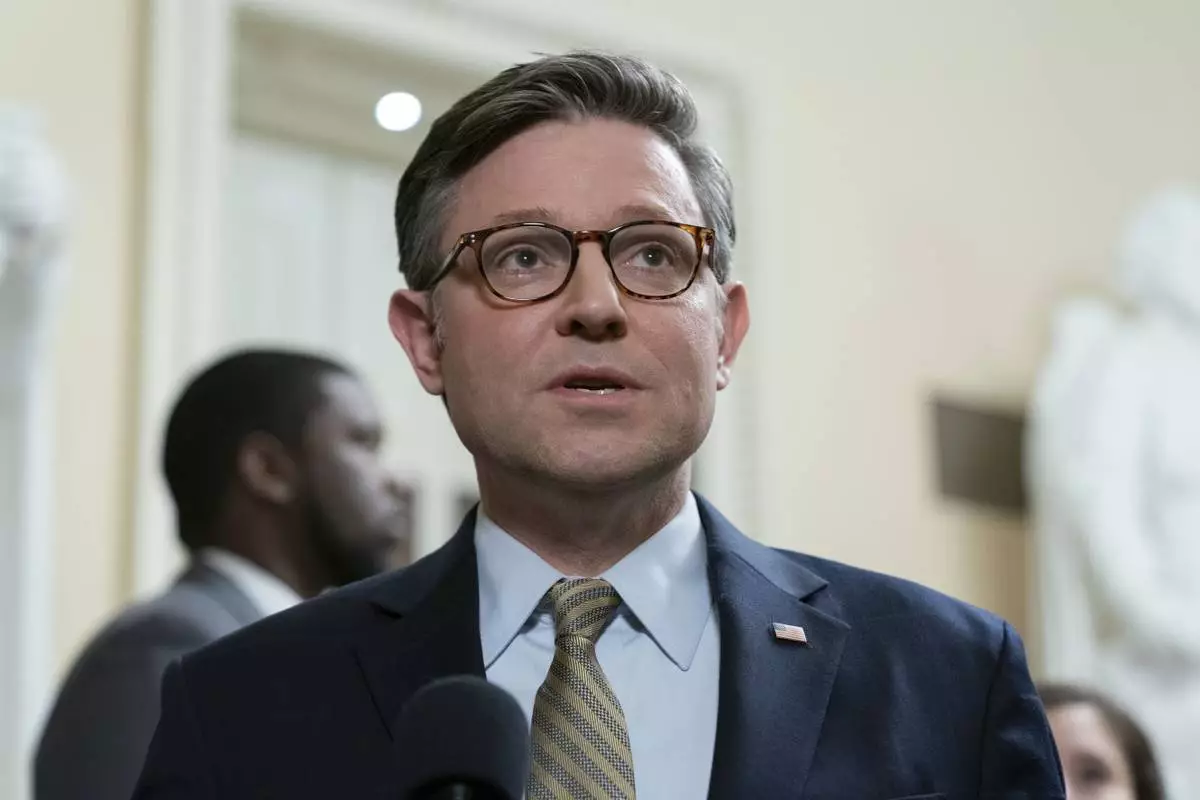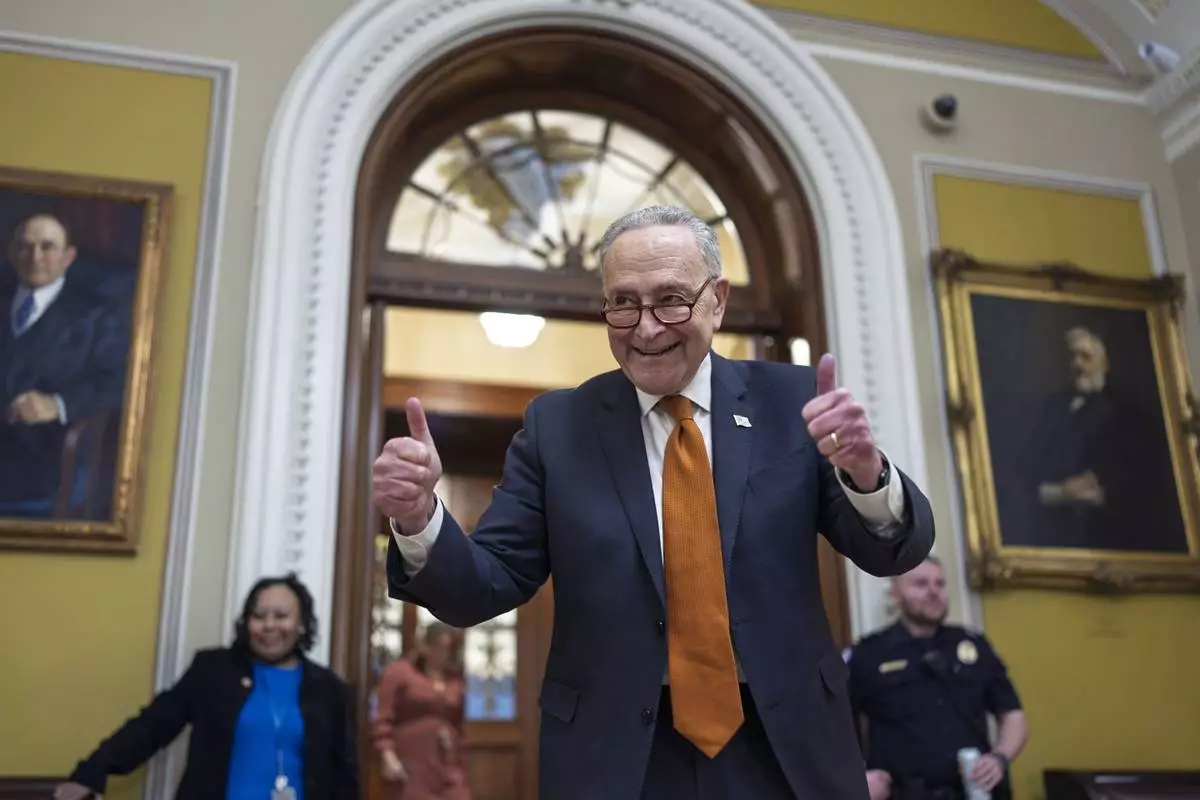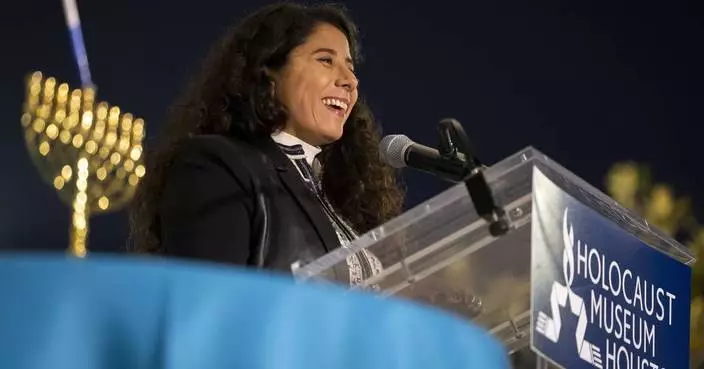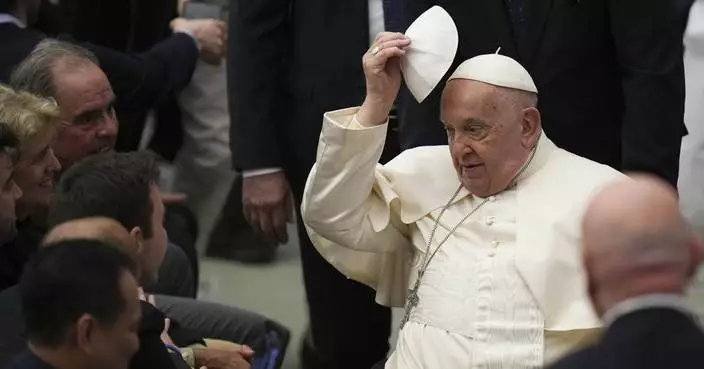WASHINGTON (AP) — In some of the closest House races in the country, Democratic candidates are leaning into an issue that Republicans have made a centerpiece of their efforts to expand their majority — immigration.
Rep. Marcy Kaptur, D-Ohio, says that anyone who crosses the border must do so legally. “I voted to hire more than 10,000 new border guards, penalize businesses that hire people here illegally and lock up anyone bringing fentanyl into our country," she says.
Rep. Yadira Caraveo, D-Colo., relies on a local sheriff to make the case: "Yadira Caraveo knows how broken immigration is — just like we do. It's why she worked with Republicans to fund over 20,000 Border Patrol agents and crack down on cartels."
And Rep. Don Davis, D-N.C., tells viewers he’s been to the border three times to see for himself what’s needed and that's why he was working with both parties to hire new Border Patrol agents and beef up screening for fentanyl. “It's one thing to talk a big game. It's another to act, to do something,” he says.
The three lawmakers' ads show how Democrats in the most competitive races are countering the intense focus that Republicans have placed on immigration in their districts, following the lead of the Republican presidential nominee, Donald Trump. How Democrats fare on the issue could play an important role in determining which party controls the House next year. Democrats only need to flip four seats to regain the majority.
Every House Democrat last year voted against the House GOP's sweeping crackdown on immigration that included more border wall and new restrictions on asylum seekers The vote opened House Democrats to fresh criticism on an issue that about half of voters consider one of the most important going into the November election.
The Democratic ads clearly look to demonstrate support for narrower border security legislation to show they hear the voters' concerns. Polling shows more adults wanting to see a decrease in immigration into the U.S., with a Gallup poll this summer showing Republicans, Democrats and independents all significantly more likely than a year ago to favor less immigration.
Republicans are dismissive of the Democratic candidates' efforts and the impact they will have on the election.
"Kamala Harris’ policies have opened our borders and created all kinds of problems with crime, fentanyl, in every community in America. Democrats in Congress were right there every step of the way,” said Richard Hudson, the chair of the House Republican campaign arm. “And they are now trying to confuse the American people about their record. I just think the American people are smarter than that and are not going to fall for it.”
Rep. Suzan DelBene, the chair of the House Democrats campaign arm, said the immigration ads fit with a theme that Democrats have emphasized on other issues: It takes bipartisanship to deal with the major issues facing the country.
“People have seen the dysfunction of Republicans in Congress over and over again,” DelBene said. “And they see how they play politics with issues that are important to our communities, so we're going to hold them accountable for that and talk about how we're running to govern and get things done for the American people.”
Rep. Tom Suozzi, D-N.Y., won a special election in February, in part, by addressing border security in his campaign ads, DelBene said. She said he set a template for other Democratic ads that emphasize working across party lines in solving problems.
“Governing is sitting at the table negotiating bipartisan solutions. That's what was happening until Donald Trump said ‘no’ because he wanted to continue to have this be a political issue he could talk about,” DelBene said.
DelBene's reference to Trump stems from his harsh criticism of an immigration bill that came before the Senate in February. Trump called the bill, which was negotiated over months of talks, a great gift for Democrats and a death wish for his party. The bill also included aid for Ukraine and Israel. Republicans blocked it on a key test vote, in part because Trump demanded that they oppose it.
It's not just incumbents placing immigration-related ads. Democratic challengers are as well. They're blaming Republican incumbents for assisting in the effort to kill the bipartisan border bill that died in the Senate at Trump's urging.
In an Arizona swing district that stretches to the U.S.-Mexico border, Democrat Kirsten Engel features a former law enforcement officer talking about the lives he's seen wrecked by the fentanyl that comes across the border. The former officer says Republican Rep. Juan Ciscomani “helped kill” the Senate immigration bill, which would have led to the hiring of more Border Patrol agents.
“Engel will set aside politics to secure the border and stop the flow of drugs,” the former officer said of the Democratic challenger.
Ciscomani, a freshman House Republican, had been critical of aspects of the Senate bill. But that measure never came up for a vote in the House. Nevertheless, he said he was open to improving the bill if given the chance.
“The attack is, ‘oh, he, you know, he just decided to kill the bill, or it’s dead on arrival.' First of all, I don't have that authority. I don't have that power as a single member of the House," Ciscomani said. “But had that made it over to the House, you betcha, I would have been right there at the table working on this to improve it.”
In Pennsylvania, Democratic challenger Janelle Stelson goes after both parties in her campaign ad. She's running against Republican incumbent Scott Perry. She says too many Democrats deny there's a crisis at the southern border, but what Perry did was worse.
“He opposed a law Border Patrol agents said would help. He wants a campaign issue instead of solving the problem,” Stelson says. “Putting politics ahead of our safety is gross.”
When asked for a response to the ad, Perry's campaign sent an emailed statement from the congressman where he said the Senate bill “does the exact opposite” of securing the border.
“Voters understand the false bill of goods Stelson is selling and they will reject her desperate attempt to cover up her party’s reckless immigration policies that are endangering people all across south central Pennsylvania,” Perry said.
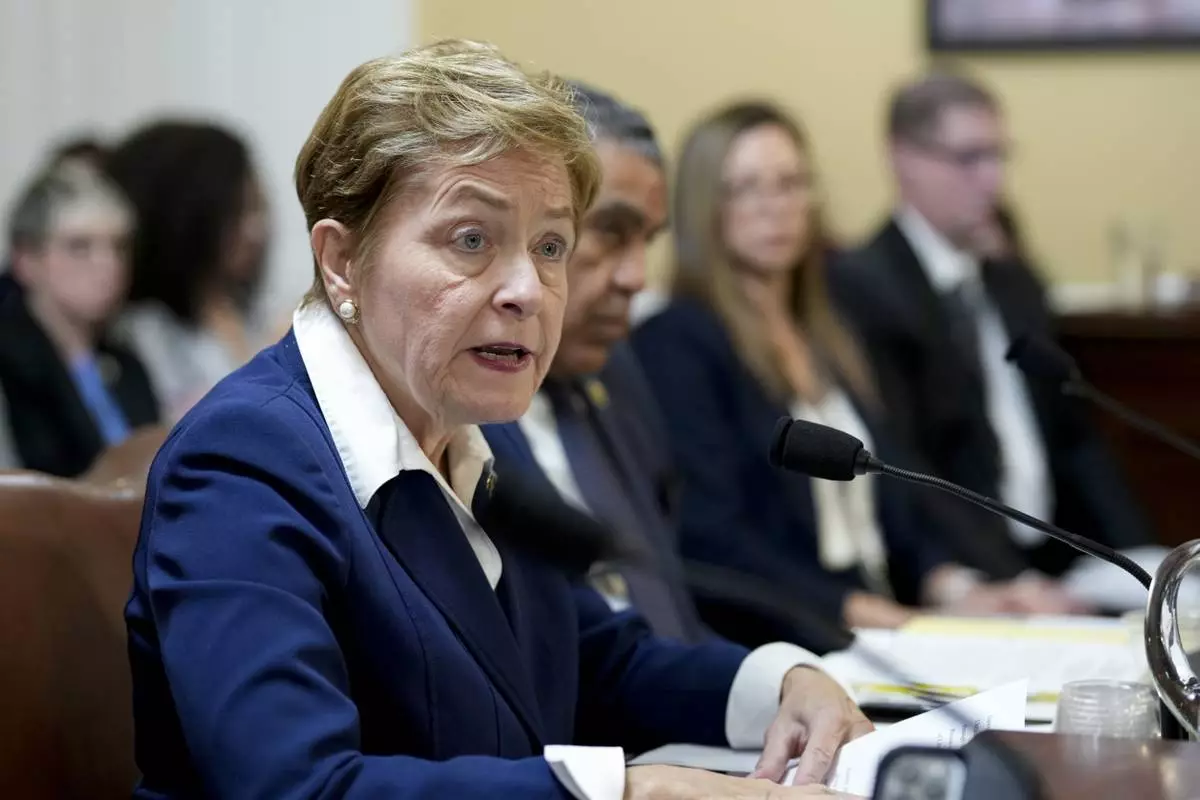
FILE - Rep. Marcy Kaptur, D-Ohio, speaks during a hearing at the Capitol in Washington, Oct. 2, 2023. (AP Photo/J. Scott Applewhite, File)


